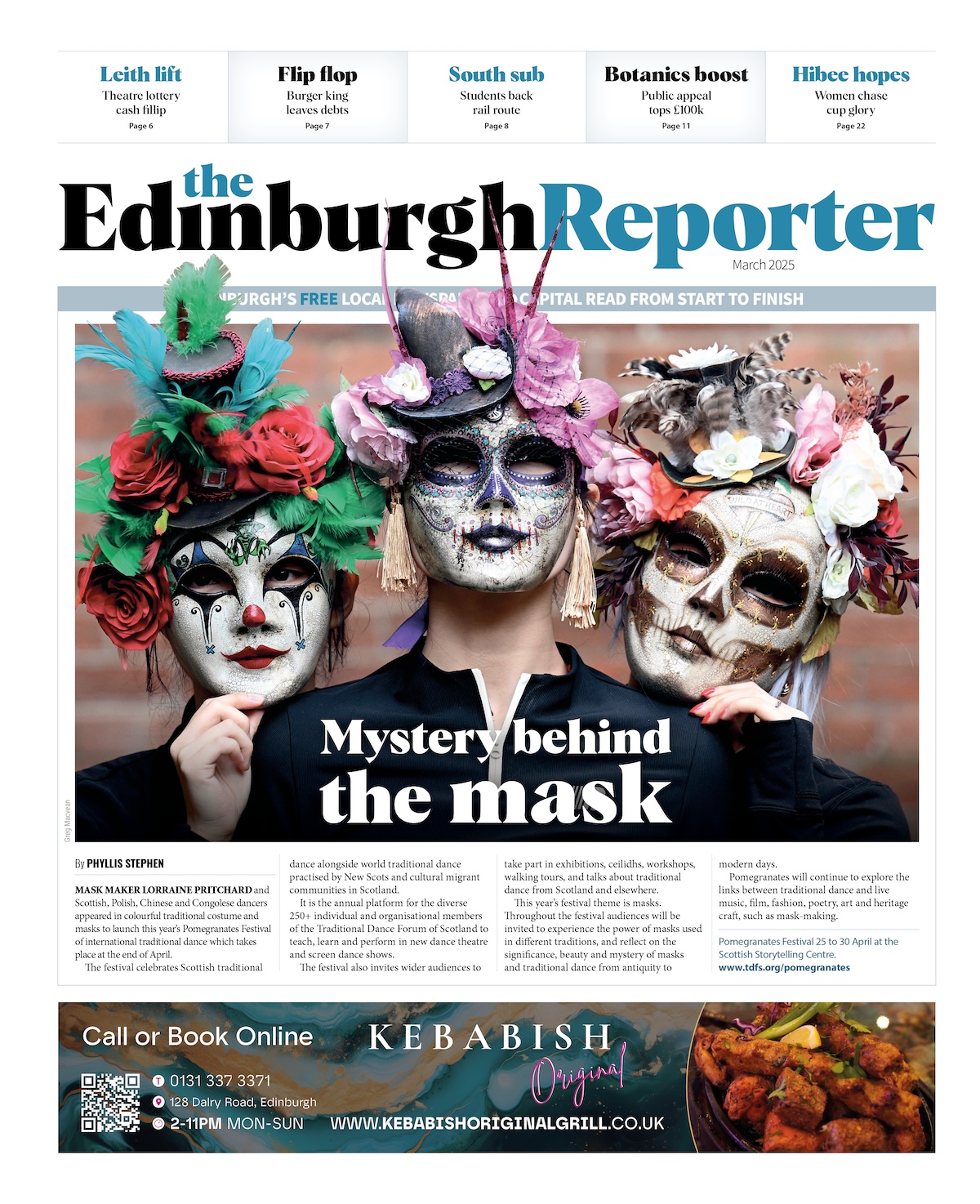Can we really communicate with the dead? And why do we need to believe in the possibility that we can? These are the profound human questions behind the Lyceum’s thrilling yet thoughtful new play, a visually arresting co-production with Glasgow-based theatre company Vox Motus, written by leading Scottish playwright Peter Arnott.
Based on the story of real Davenport siblings, travelling peddlars of hokum in the late 19th century, it tells of a séance sponsored by Edinburgh socialite Lady Noyes-Woodhull (a huffy Anita Vettesse), who, although a woman of reason and science, is desperate to locate her doctor husband, missing and presumed dead in Africa.
Enter the youthful Davenports, along with their verbose stage manager Mr Fay (given a suitably plummy delivery by Gavin Mitchell), who claim to be able to converse with spirits on the other side. Although their stage trickery proves highly entertaining to the Lyceum’s modern-day audience, it only serves to frustrate the increasingly bewildered Noyes-Woodhull. But as the brothers’ shockingly violent family background is slowly revealed, there’s the never-resolved question that for all their chicanery, their abilities might actually be real.
 Real-life brothers Ryan and Scott Fletcher are compelling as the damaged Davenports, hiding their volatile mischievousness behind butter-wouldn’t-melt exteriors, yet prone to sudden eruptions that betray an intense inner anger. Scott Fletcher in particular gives a touchingly fragile performance as the younger Willie Davenport, and even at the end we’re left wondering whether his conversations with his deceased sister are real, or simply projections of his own wounded mind.
Real-life brothers Ryan and Scott Fletcher are compelling as the damaged Davenports, hiding their volatile mischievousness behind butter-wouldn’t-melt exteriors, yet prone to sudden eruptions that betray an intense inner anger. Scott Fletcher in particular gives a touchingly fragile performance as the younger Willie Davenport, and even at the end we’re left wondering whether his conversations with his deceased sister are real, or simply projections of his own wounded mind.
In Jamie Harrison’s highly effective staging, high on faded grandeur, the Davenports’ experiments take place within a cabinet suspended centre-stage, with audience members even invited on stage and decked out in period costumes to observe it from close quarters. The macabre box also opens and closes to reveal (and conceal) the brothers’ terrible history, the ‘magic’ of their illusions being mirrored in the cabinet’s miraculous transformations from hovel to street to graveyard. The elegance of Harrison’s design lies in just how neatly it echoes the themes of the play itself.
 Yet by Arnott’s shocking yet boldly nihilistic conclusion, it’s as if the tables have been turned on us. As the séance’s sordid artifice is crudely exposed, we’re forced to ask why we ever wanted to believe in the first place. Perhaps, as the fawning Mr Fay says, it’s our minds that can change worlds and create realities – certainly an attractive option for the shattered lives portrayed on the stage. From a frothy recreation of Victorian subterfuge, Arnott and the Lyceum and Vox Motus teams have created a profoundly resonant and deeply human play.
Yet by Arnott’s shocking yet boldly nihilistic conclusion, it’s as if the tables have been turned on us. As the séance’s sordid artifice is crudely exposed, we’re forced to ask why we ever wanted to believe in the first place. Perhaps, as the fawning Mr Fay says, it’s our minds that can change worlds and create realities – certainly an attractive option for the shattered lives portrayed on the stage. From a frothy recreation of Victorian subterfuge, Arnott and the Lyceum and Vox Motus teams have created a profoundly resonant and deeply human play.
The Infamous Brothers Davenport is on at the Royal Lyceum Theatre, Edinburgh, until 11 February, and then tours to the Citizens Theatre, Glasgow (14-18 February) and Eden Court, Inverness (22-25 February).











